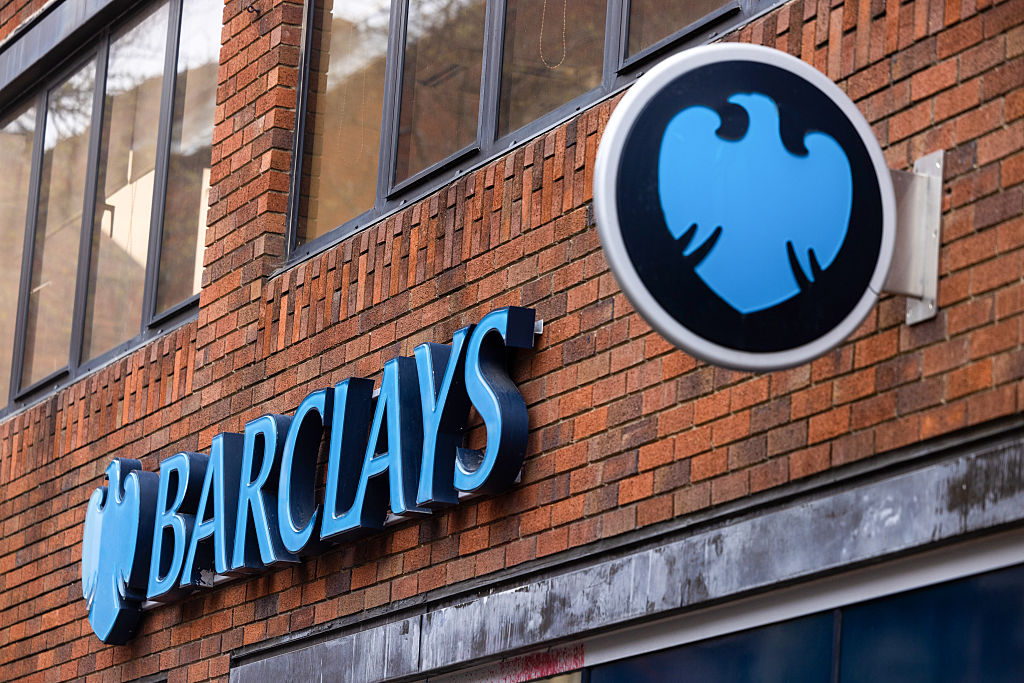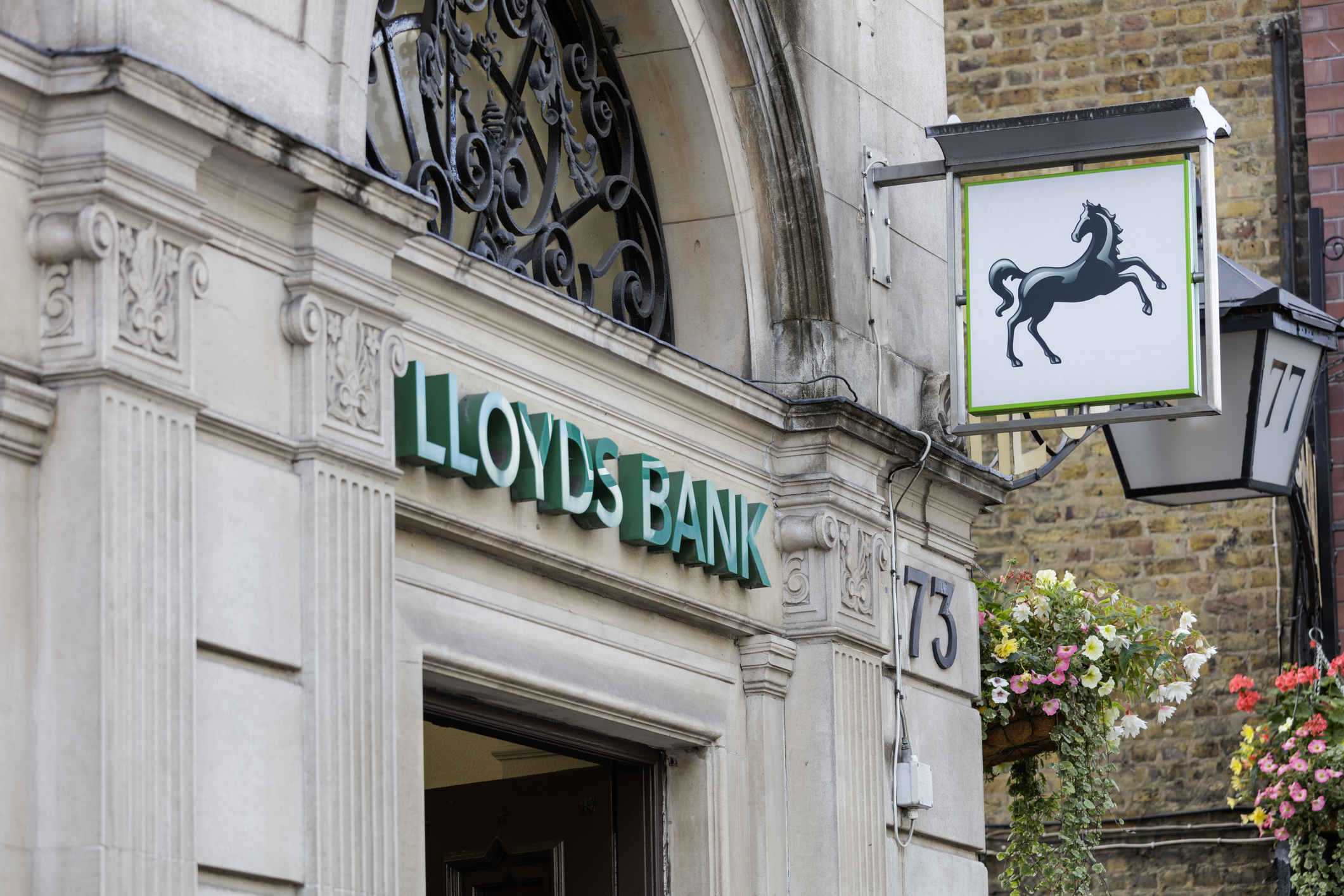Six shared banking hubs open as more branches close - where to find them
Six banking hubs are now up and running, and aim to plug the gaps left by branch closures. We explain who can use them and if there’s one near you.


Get the latest financial news, insights and expert analysis from our award-winning MoneyWeek team, to help you understand what really matters when it comes to your finances.
You are now subscribed
Your newsletter sign-up was successful
Want to add more newsletters?

Twice daily
MoneyWeek
Get the latest financial news, insights and expert analysis from our award-winning MoneyWeek team, to help you understand what really matters when it comes to your finances.

Four times a week
Look After My Bills
Sign up to our free money-saving newsletter, filled with the latest news and expert advice to help you find the best tips and deals for managing your bills. Start saving today!
If your local bank or building society branch has closed recently - or is set to close soon - you’re not alone.
While you can switch bank accounts to find one that has a branch near to you, it is certainly getting harder to tick that box.
Thousands of bank branches have closed in recent years. Lloyds and Halifax recently announced they would close another 40 branches this year, while Barclays said on Saturday it would shut another six branches. Last year, HSBC said it would close 114 branches from April 2023.
MoneyWeek
Subscribe to MoneyWeek today and get your first six magazine issues absolutely FREE

Sign up to Money Morning
Don't miss the latest investment and personal finances news, market analysis, plus money-saving tips with our free twice-daily newsletter
Don't miss the latest investment and personal finances news, market analysis, plus money-saving tips with our free twice-daily newsletter
The banks say demand has fallen as more as more customers do their banking online and that customers can also use any of the Post Office’s 11,635 branches to carry out most banking tasks.
As branches close, you may see a new “banking hub” pop up in your local area, which allow people from different banks to deposit and withdraw money - we explain below where to find the six which have recently opened.
We explain how banking hubs and banking pods work, where the new banking hubs will be, and what the alternatives are if your local branch has closed and you still want face-to-face banking.
What is a banking hub?
Banking hubs allow customers from different banks to deposit and withdraw money. They offer a counter service operated by the Post Office, where customers of all major banks and building societies can carry out regular cash transactions, Monday to Friday.
The hubs also provide dedicated rooms where customers can see community bankers from their own banks to discuss more complicated banking issues. The community bankers work on rotation, with a different banking provider available on each day of the week.
In total, there are plans to create 62 hubs, but only six have opened so far. These are in:
- Brixham (Devon)
- Cambuslang (South Lanarkshire)
- Cottingham (East Riding of Yorkshire)
- Rochford (Essex)
- Troon (South Ayrshire)
- Acton, London
The ATM network operator, Link, has also recently announced locations for eight banking hubs:
- Downham Market (Norfolk)
- Shirebrook (Derbyshire)
- Otley (West Yorkshire)
- Sidmouth (Devon)
- Newton Aycliffe (County Durham)
- Porthcawl (Bridgend)
- Withernsea (East Yorkshire)
- Wellington (Somerset)
It is unknown when these particular eight banking hubs will open. We’ll update this article when we know more.
“Access to cash and face-to-face banking services continues to be important for millions of people across the UK. Not everyone can or is able to go digital yet, so we’re pleased to announce new cash services to support these communities,” said John Howells, chief executive of Link.
Link also announced the planned introduction of cash deposit machines in Keswick in Cumbria, Ripley in Derbyshire, Littlehampton in West Sussex, Whitstable in Kent, Dagenham in Greater London, and Colwyn Bay in Clywd.
There are plans for 38 new deposit services around the UK, where consumers and businesses can deposit cash without having to visit a bank branch.
On top of that there are plans for three fee-free ATMs to open up soon in areas where banks are closing down along with their ATMs. These will open in:
- East Horsley (Surrey)
- Newburn (Newcastle)
- Ystradgynlais (Powys)
What is a banking pod?
Barclays has announced it will launch a string of “banking pods” in response to changing customer needs.
The pods are purpose-built, semi-permanent structures in locations such as shopping centres and retail parks. They will provide a dedicated, private space, and can be moved depending on demand.
The pods differ to the shared banking hubs mentioned above, as the pods are only for Barclays customers.
At least 10 pods will be rolled out across the UK by summer 2023 following the success of the bank’s first one in St Austell.
The bank has not yet revealed the locations for the pods, but it says some of them will be areas without an existing Barclays presence.
In addition, six electric vehicle banking vans will be added to Barclays’ existing fleet of 10, enabling the bank to reach customers in remote locations.
The bank also said it is expanding its scheme where it works with local councils and communities to arrange a presence in places such as town halls and libraries.
“Our new banking pods and community pop-ups help us to tailor our in-person support for each location, including support with digital skills. In areas where we close a branch, we will maintain our presence in that community offering an alternative face-to-face solution,” said Jo Mayer, head of everyday banking at Barclays UK.
“They must be rolled out far more quickly”
Critics say banking hubs, pods, vans, pop-ups and any other types of temporary branches all need to be introduced quicker into communities struggling with a lack of banking services.
Jenny Ross, editor of Which? Money, said: “Cash remains hugely important for a significant minority who use it to pay for everyday essentials and keep track of their spending as the cost of living crisis goes on, yet banks such as Barclays continue to close hundreds of branches, making it harder for people to deposit and withdraw it.
“Proposals to plug gaps left by bank branch closures may well be part of the solution to protect access to cash, but must be rolled out in much larger numbers and far more quickly in order for people to feel their benefits.”
According to research by Which? last year, almost a quarter of free-to-use ATMs have vanished since 2018, while 4,685 bank branches have shut their doors - meaning almost half of the UK’s bank branches have closed since 2015.
My bank branch has closed. What are my options?
If your local branch has closed, check to see if there is a shared banking hub near you, or if your banking provider has any community pop-ups. As well as Barclays, TSB also runs pop-ups for its customers, such as in libraries, town halls and churches.
If you have a Post Office near you, you may be able to use its banking services, such as withdrawing cash, depositing cash and cheques and checking your account balance, Customers of Halifax, Lloyds, TSB, Allied Irish Bank, AIB, Bank of Ireland, Bank of Scotland and Virgin Money can access the full range of manual and automated banking services at a Post Office. Other customers may only be able to use certain services.
There’s a handy table on the Post Office website showing which personal services and which business services are available to which banking customers.
Another option if you want to withdraw money and there’s no bank branch, Post Office or ATM near you is to get cashback in a shop. Some supermarkets and convenience stores offer cashback at their tills with your debit card - and you don’t need to buy anything. Type your postcode into the Link website to see your options.
Finally, you could switch to another bank or building society that does have a local branch (although be aware there’s no guarantee this won’t close too).
Changing current account could mean you find one that is better suited to you, for example, offering cashback on bills, an interest-free overdraft and/or a decent savings rate. Look out for banks offering a switching bonus, as this means you’ll bag some free cash too.
Get the latest financial news, insights and expert analysis from our award-winning MoneyWeek team, to help you understand what really matters when it comes to your finances.

Ruth is an award-winning financial journalist with more than 15 years' experience of working on national newspapers, websites and specialist magazines.
She is passionate about helping people feel more confident about their finances. She was previously editor of Times Money Mentor, and prior to that was deputy Money editor at The Sunday Times.
A multi-award winning journalist, Ruth started her career on a pensions magazine at the FT Group, and has also worked at Money Observer and Money Advice Service.
Outside of work, she is a mum to two young children, while also serving as a magistrate and an NHS volunteer.
-
 Should you buy an active ETF?
Should you buy an active ETF?ETFs are often mischaracterised as passive products, but they can be a convenient way to add active management to your portfolio
-
 Power up your pension before 5 April – easy ways to save before the tax year end
Power up your pension before 5 April – easy ways to save before the tax year endWith the end of the tax year looming, pension savers currently have a window to review and maximise what’s going into their retirement funds – we look at how
-
 Nationwide promises to protect all its branches from closures until at least 2030
Nationwide promises to protect all its branches from closures until at least 2030The building society has extended its pledge to keep all high street Nationwide and Virgin Money branches open, now until at least 2030.
-
 Barclays bank switch: how to get £400 'free' cash by moving accounts
Barclays bank switch: how to get £400 'free' cash by moving accountsBarclays has unveiled a £400 current account switching offer, running alongside its £500 ISA transfer deal. Which accounts are on offer, and are you eligible?
-
 Green mortgages: how do they work and how much can you save?
Green mortgages: how do they work and how much can you save?Most high-street lenders now offer some kind of green mortgage deal. We look at who’s eligible, how to apply and the mortgage rates and cashback on offer
-
 Thousands of Brits switch to Nationwide, Monzo and NatWest – which banks are least popular?
Thousands of Brits switch to Nationwide, Monzo and NatWest – which banks are least popular?We look at the most and least popular banks and building societies as current account bank switches reach a record high. Is it worth moving your money?
-
 Barclays to pay millions in compensation after IT outage chaos
Barclays to pay millions in compensation after IT outage chaosBarclays intends to compensate customers after an IT outage caused payment problems for three days
-
 Lloyds Bank returns with £175 bank switch bonus – is it worth moving banks?
Lloyds Bank returns with £175 bank switch bonus – is it worth moving banks?Lloyds Bank is offering customers £175 to move to one of its Club accounts. We look at whether it’s worth taking advantage of the bank switching bonus
-
 Barclays reports large spike in romance scams - here's how to avoid them
Barclays reports large spike in romance scams - here's how to avoid themThe UK bank found a 139% increase in the total value of romance scams
-
 Nationwide, HSBC, Barclays and Virgin Money customers hit by payment issues
Nationwide, HSBC, Barclays and Virgin Money customers hit by payment issuesThe problems have been compounded as Friday is the last day of the month when many people are paid by their employer